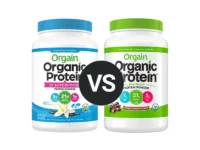Knowledge BaseYou're Questions Answered
How does protein powder impact kidney function?
Protein powders, including those derived from whey, casein, soy, pea, hemp, and rice, are popular dietary supplements used to boost protein intake. The impact of protein powder on kidney function is a subject of ongoing research and debate among healthcare professionals. While protein is essential for various bodily functions, excessive intake, particularly in the form of supplements, can have implications for kidney health, especially in individuals with pre-existing kidney conditions.
Protein Powder and Kidney Function in Healthy Individuals
For individuals with healthy kidneys, consuming protein powder as part of a balanced diet is generally considered safe. The kidneys efficiently filter waste products from protein metabolism, including urea, without significant strain under normal dietary conditions. The Dietary Reference Intake (DRI) suggests an average adult requires 0.8 grams of protein per kilogram of body weight per day. However, athletes and those with higher physical activity levels may consume more protein to support muscle repair and growth, often using protein powders to meet their increased needs1.
Protein Powder and Kidney Function in Individuals with Kidney Disease
For those with pre-existing kidney disease or impaired kidney function, high protein intake, including from protein powders, can exacerbate kidney strain. The kidneys are responsible for filtering waste products from protein metabolism, such as urea and ammonia. In individuals with reduced kidney function, this filtration process can be compromised, leading to the accumulation of waste products and worsening kidney damage2. Healthcare professionals often recommend that individuals with chronic kidney disease (CKD) limit their protein intake to reduce the burden on their kidneys.
Research Findings and Considerations
Research on the impact of protein intake on kidney function has produced mixed results. Some studies suggest that high protein intake, particularly from animal sources like whey protein, may be associated with a decrease in kidney function and an increased risk of developing chronic kidney disease (CKD)3. However, these studies often do not establish a direct cause-and-effect relationship, and the observed effects may be influenced by other factors, such as overall diet and lifestyle.
Interestingly, plant-based protein sources, such as pea and soy protein, may have a different impact on kidney function. Some studies indicate that plant-based proteins do not exert the same level of strain on the kidneys as animal-based proteins, potentially due to differences in amino acid composition and metabolic byproducts4. However, more research is needed to confirm these findings and to understand the long-term effects of high protein intake from various sources on kidney health.
Guidelines for Protein Powder Consumption
Individuals with healthy kidneys can typically consume protein powders without adverse effects, provided they stay within recommended dietary protein levels. However, those with kidney disease or risk factors for kidney problems should consult a healthcare professional before using protein supplements. A healthcare provider can help determine an appropriate level of protein intake and recommend specific types of protein powders that may be less likely to exacerbate kidney issues.
- Phillips, S. M. (2014). A brief review of higher dietary protein diets in weight loss: A focus on athletes. Sports Medicine, 44(2), 149-153.
- Fouque, D., & Laville, M. (2009). Low protein diets for chronic kidney disease in non diabetic adults. Cochrane Database of Systematic Reviews, (3), CD001892.
- Rasheed, H., Harris, A. L., Tareen, N., & Khan, M. S. (2018). Dietary protein intake and kidney function: a systematic review and meta-analysis. American Journal of Kidney Diseases, 72(6), 791-808.
- Kopple, J. D., & Kreatsoulas, C. (2017). Plant versus animal protein for human health: the case for pea protein. Journal of Renal Nutrition, 27(3), 174-179.
Related Questions

Your Answer
We are a participant in the Amazon Services LLC Associates Program, an affiliate advertising program designed to provide a means for us to earn fees by linking to Amazon.com and affiliated sites.





